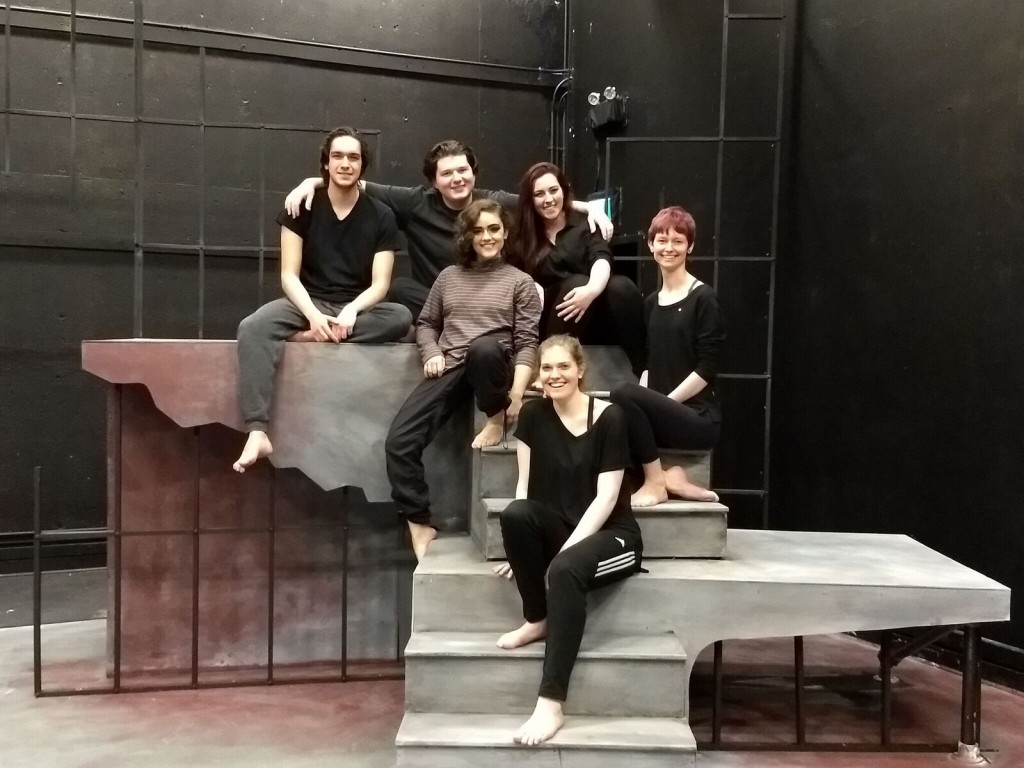
A contemporary adaptation of ‘Antigone’
By Caroline Ho, Arts Editor
A dualistic battle of ideological extremes will dominate the stage in Antigone, the first of two Winter 2018 productions from the Departments of Theatre and Stagecraft & Technology.
Adapted from Sophocles’ classic tragedy by Kathleen Weiss and directed by Thrasso Petras, the upcoming production centres around Antigone, a young woman who is determined to bury her brother’s body against the edict of her city’s ruler, Creon.
Sophocles’ text, stated Petras in an interview with the Other Press, “proposes an intellectual argument between the rule of law and God, which represents morality, love, family—these different ideas of justice.”
Antigone upholds the latter ideal, defying the law to do what she believes is right, while Creon stands for the former, exercising his authority for the greater good as he understands it. Both sides present compelling arguments for the justness of their position, but both also take their cases to the extreme and are unwilling to compromise.
This binary—law versus morality—is one that we’ve seen repeated time and time again, from Sophocles’ Ancient Greece 2,500 years ago to other periods in history, which is why productions of Antigone have had such power and poignancy over the millennia. In today’s political climate, said Petras, the debate continues to be as pertinent as ever. For example, the recent Harper government’s harsh stance on crime and their economic policies were unpalatable to many Canadians, but they evidently appealed to many others for their emphasis on law and order as the foundation of justice.
Petras hopes the Theatre Department’s production of Antigone will demonstrate to audiences that both ideological poles can be very persuasive.
“It’s not just bad guy, good guy, because that would be boring,” he said. “Creon is often cast as the bad guy, as the unreasonable, and we’re trying hard to look at that character and go, ‘He’s doing what he’s doing because he genuinely believes that that’s the best course of action.’”
According to Petras, he expects that audiences will find themselves agreeing with one side or another, since picking sides is happening all around us each and every day. However, part of the strength of Antigone is its provocation to consider a space between these two fundamental concepts—a challenging yet empowering middle ground of understanding and compromise.
This Antigone will also differ from traditional productions with its physicality, thanks to Kathleen Weiss’ text.
“She’s taken this intellectual debate, where in Ancient Greece it would have been produced in a much different way, much more static traditionally, and she’s left room for us to play with the physicality of it and the gestural expression of what’s going on,” said Petras.
For the director, whose background is in physical theatre, the most satisfying thing about directing this production has been seeing these young student actors embrace the text and all of its multiple layers of meaning, uncovering the nuances of every word and combining them with movement to bring the text to life.
There comes a point, said Petras, “where all of a sudden all the actor work, all the character development, all the stuff that they’re doing, suddenly it allows us to really hear the triple meaning of a word, or a concept, or an image. It suddenly comes to light.”
Antigone opens on March 9, with a free preview show on March 8 at 2 p.m., and runs until March 16. Advance tickets are available online at antigone2018.bpt.me.



